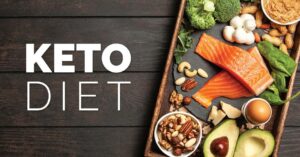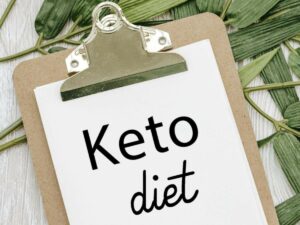Whether you are a diabetic or an overweight person, you must have given the keto diet plan a try or at least thought about it. One of the most popular fad diets, keto is gaining popularity ever since it came into existence. People need to be educated about the keto plan and its benefits. This article will look into the keto diet plans.
Contents
What is the Keto Diet?

The Keto Diet is a high-fat, low-carbohydrate diet that has been used for centuries to treat various medical conditions. The diet is based on the premise that by consuming a high amount of fat and a low amount of carbs, the body will enter a state of ketosis, where it will burn fat for fuel instead of carbohydrates.
The Keto Diet has been shown to be effective in treating epilepsy, cancer, and Alzheimer’s disease. The diet has also been shown to be effective in weight loss, as it helps to burn stored body fat.
If you are interested in trying the Keto Diet, it is important to speak with your doctor first, as the diet may not be suitable for everyone.
Keto Diet Plan
If you’re new to the keto diet or just need some inspiration, we’ve created a 7-days keto diet meal plan just for you. This plan includes delicious recipes, so you can make sure you’re getting all the nutrients you need on this high-fat, low-carb diet.
Day 1
Breakfast: coffee or tea with pancakes
Lunch: Chicken salad with olive oil and vinegar
Dinner: Salmon with broccoli and avocado
Snacks: Cheese sticks or pork rinds
Day 2
Breakfast: Scrambled eggs with bacon and avocado
Lunch: Tuna salad with olive oil and vinegar
Dinner: Beef stir-fry with vegetables
Snacks: Olives or dark chocolate
Day 3
Breakfast: Keto oatmeal with berries and almond milk
Lunch: Cobb salad with chicken, bacon, avocado, and blue cheese dressing
Dinner: Pork chops with roasted Brussels sprouts and mashed cauliflower
Snacks: String cheese or hard-boiled eggs
Day 4
Breakfast: Smoothie with avocado, coconut milk, and berries
Lunch: Chicken soup
Dinner: Beef and broccoli stir-fry
Snacks: Cucumber slices with hummus or a handful of nuts
Day 5
Breakfast: Omelet with vegetables
Lunch: Salad with chicken or shrimp
Dinner: Coconut curry with chicken
Snacks: Berries or Greek yogurt
Day 6
Breakfast: Keto pancakes
Lunch: BLT salad with avocado
Dinner: Grilled chicken with vegetable
Snacks: boiled eggs or carrot sticks
Day 7
Breakfast: Keto waffles
Lunch: Caesar salad with chicken
Dinner: Shrimp scampi
Snacks: Strawberries or raw nuts
Note: This diet is just a general keto diet and does not align with any medical conditions, if you have any medical conditions, consider talking to your healthcare provider before starting a keto diet.
Benefits
The keto diet has many potential benefits. In addition to those benefits, there are some important benefits that are listed below:
Epilepsy
The keto diet has been shown to be effective in treating epilepsy. The diet works by reducing the body’s production of glucose, which is the main source of energy for the brain. This reduction in glucose production can help to prevent or reduce the frequency of seizures.
Weight Loss
When it comes to weight loss, the keto diet is one of the most popular and effective diets out there. And for good reason: the keto diet can help you lose weight quickly and effectively. Here’s how the keto diet works for weight loss: when you eat a keto diet, your body goes into a state of ketosis.
In ketosis, your body burns fat for energy instead of carbs. This means that you can lose weight quickly and effectively by eating a keto diet. If you’re looking to lose weight, the keto diet is a great option. The keto diet can help you lose weight quickly and effectively, and it’s a great way to jumpstart your weight loss journey.
Diabetes
The keto diet has been shown to be helpful in managing diabetes. This is because the keto diet helps to regulate blood sugar levels. When blood sugar levels are regulated, it helps to keep diabetes under control. Additionally, the keto diet helps to promote weight loss. This is beneficial for people with diabetes because obesity is a major risk factor for developing diabetes.
Side Effects
The ketogenic diet has been shown to have a variety of potential benefits, including weight loss, increased energy levels, and improved mental clarity. However, some people may also experience unwanted side effects, such as headaches, fatigue, and constipation.
Fortunately, there are ways to minimize the risk of experiencing side effects on a ketogenic diet. For example, make sure to drink plenty of water and get enough electrolytes (salt, potassium, magnesium) in your system. Additionally, it’s important to slowly decrease your carb intake when first starting out on a keto diet plan in order to avoid making the transition too abrupt. By following these tips, you can help reduce the likelihood of experiencing any negative side effects while still reaping all the benefits of this effective diet plan!
Limitations
The ketogenic diet is not for everyone. People who are taking medications that lower blood sugar should not follow the diet without supervision from a healthcare provider. In addition, women who are pregnant or breastfeeding and people with certain genetic disorders should not attempt the diet.
Those with kidney disease should also be cautious when considering the ketogenic diet, as it can worsen existing kidney problems. And, as with any restrictive diet, it is important to speak with a healthcare provider before starting the ketogenic diet to make sure it is the right fit for you.
Is Ketosis Dangerous?
There’s a lot of misinformation out there about ketosis, with some people believing that it’s a dangerous condition that can lead to ketoacidosis. However, ketosis is a perfectly normal and healthy metabolic state that occurs when your body is burning fat for fuel.
Ketosis is often confused with ketoacidosis, which is a serious and potentially life-threatening condition that occurs when your body produces too much ketone bodies. This can happen if you have untreated type 1 diabetes or type 2 diabetes, and it requires immediate medical attention.
Ketosis State

When you eat a lot of carbs, your body produces glucose, which is used for energy. However, when you cut back on carbs, your body must find another source of energy, and this is where ketosis comes in.
Ketosis is a process in which your body burns fat for energy instead of carbs. This state can be achieved by following a very low-carbohydrate diet or by fasting for extended periods of time. When your body is in ketosis, it becomes more efficient at burning fat for energy, and this can lead to weight loss.
However, ketosis itself is not dangerous. In fact, it’s a perfectly normal physiological state that your body enters when it’s running on fat instead of carbs. When you’re in ketosis, your body produces ketones as a byproduct of fat metabolism. These ketones can be used for energy by your cells, and they don’t build up in your blood like they do in ketoacidosis.
So, if you’re wondering whether ketosis is dangerous, the answer is no – it’s not dangerous at all. In fact, it’s a perfectly normal metabolic state that has many benefits for health and weight loss.
Conclusion
The keto diet plan is a high-fat, low-carbohydrate diet that has been shown to help people lose weight and improve their health. There are many potential benefits of following a keto diet, including improved mental clarity and decreased inflammation. However, the diet can be difficult to follow and may not be right for everyone. If you’re considering trying the keto diet, it’s important to talk to your doctor first and make sure you’re aware of the possible risks and benefits.
Consider contacting Mantra Care for additional information on nutrition. With the support of our weight loss programs, you can achieve your optimum weight. You can also get in touch with their nutrition experts through our online nutrition counseling, who can guide you through the process and help you achieve your fitness goals. Download our Fitness App to know more about us.


